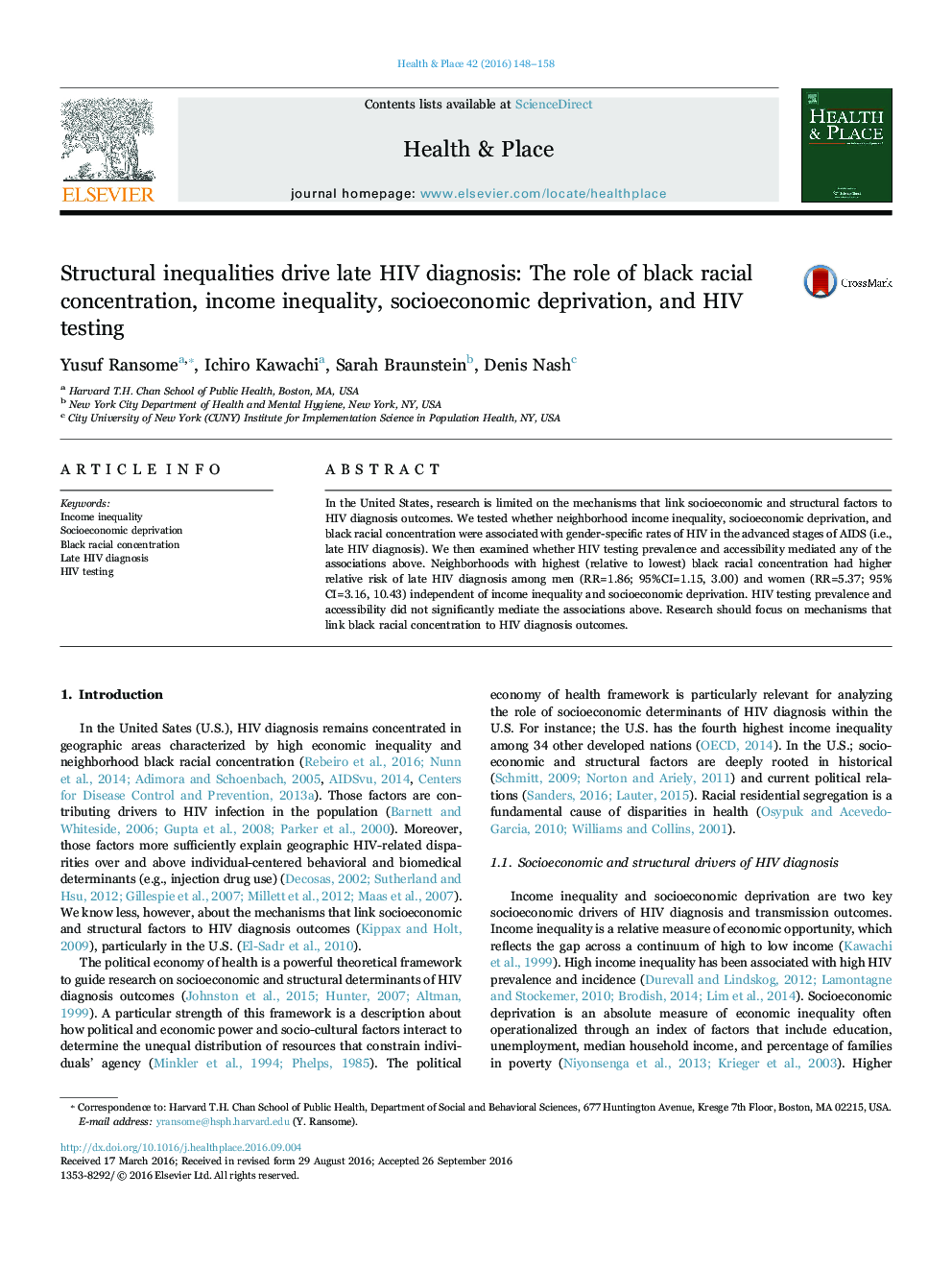| Article ID | Journal | Published Year | Pages | File Type |
|---|---|---|---|---|
| 5114901 | Health & Place | 2016 | 11 Pages |
Abstract
In the United States, research is limited on the mechanisms that link socioeconomic and structural factors to HIV diagnosis outcomes. We tested whether neighborhood income inequality, socioeconomic deprivation, and black racial concentration were associated with gender-specific rates of HIV in the advanced stages of AIDS (i.e., late HIV diagnosis). We then examined whether HIV testing prevalence and accessibility mediated any of the associations above. Neighborhoods with highest (relative to lowest) black racial concentration had higher relative risk of late HIV diagnosis among men (RR=1.86; 95%CI=1.15, 3.00) and women (RR=5.37; 95%CI=3.16, 10.43) independent of income inequality and socioeconomic deprivation. HIV testing prevalence and accessibility did not significantly mediate the associations above. Research should focus on mechanisms that link black racial concentration to HIV diagnosis outcomes.
Related Topics
Health Sciences
Medicine and Dentistry
Public Health and Health Policy
Authors
Yusuf Ransome, Ichiro Kawachi, Sarah Braunstein, Denis Nash,
